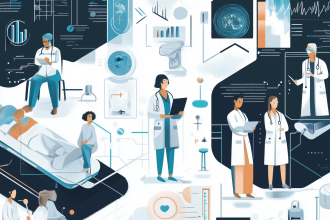As first reported by ChinaDaily, Guangdong Medical University has officially launched the country’s first Artificial Intelligence Medical School, a major step toward transforming healthcare education for the AI era. Unveiled at a ceremony in Zhanjiang, the initiative brings together over 100 universities, research institutions, and AI companies to collaboratively shape a new model for cultivating AI-literate medical professionals. The school’s mission is to prepare students for smart healthcare environments by integrating cutting-edge AI capabilities into every stage of their education, from theory to clinical practice.

Source: en.gdmu.edu.cn.
A hybrid ecosystem powered by HarmonyOS and AI
The AI Medical School is supported by an intelligent computing center built on Huawei’s HarmonyOS, combining virtual and real environments to provide immersive, hands-on learning experiences. Technologies such as virtual reality, digital twins, and the metaverse are embedded into the platform, creating realistic application scenarios where students can engage with AI-driven clinical research, diagnostic simulations, and treatment planning. More than 30 AI models — both general and scenario-specific — and a robust database of medical knowledge have been introduced to support this ecosystem.
Driving AI literacy and collaborative innovation
Leaders from academia and government underscored the strategic importance of AI education in medicine. According to university president Lu Jinghui, the school is designed to instill strong AI literacy across clinical, diagnostic, and research domains. Chinese Academy of Sciences academician Hou Fanfan praised the school’s innovative model for integrating general and specialized AI technologies, while Guangdong Health Commission’s Yi Xuefeng emphasized the platform’s value in empowering both educators and students. The program’s first phase includes over 100 experts and 20 ecosystem partners contributing content and model development.
A national trend toward AI-integrated healthcare training
Guangdong’s initiative reflects a broader shift across Chinese higher education. Institutions like Shanghai Jiao Tong University and Tongji University have recently launched their own medical AI centers, signaling growing national momentum in aligning healthcare education with technological advances. Guangdong Medical University’s location in the innovation-focused Leizhou Peninsula further reinforces its role in driving forward the intersection of medicine, education, and emerging technologies.
With the launch of China’s first AI Medical School, Guangdong Medical University is redefining what it means to train healthcare professionals in the digital age. By fusing immersive technologies and AI-driven platforms, the school provides a forward-thinking blueprint for medical education that prioritizes adaptability, collaboration, and real-world application — essential traits for tomorrow’s physicians navigating an increasingly intelligent healthcare system.





